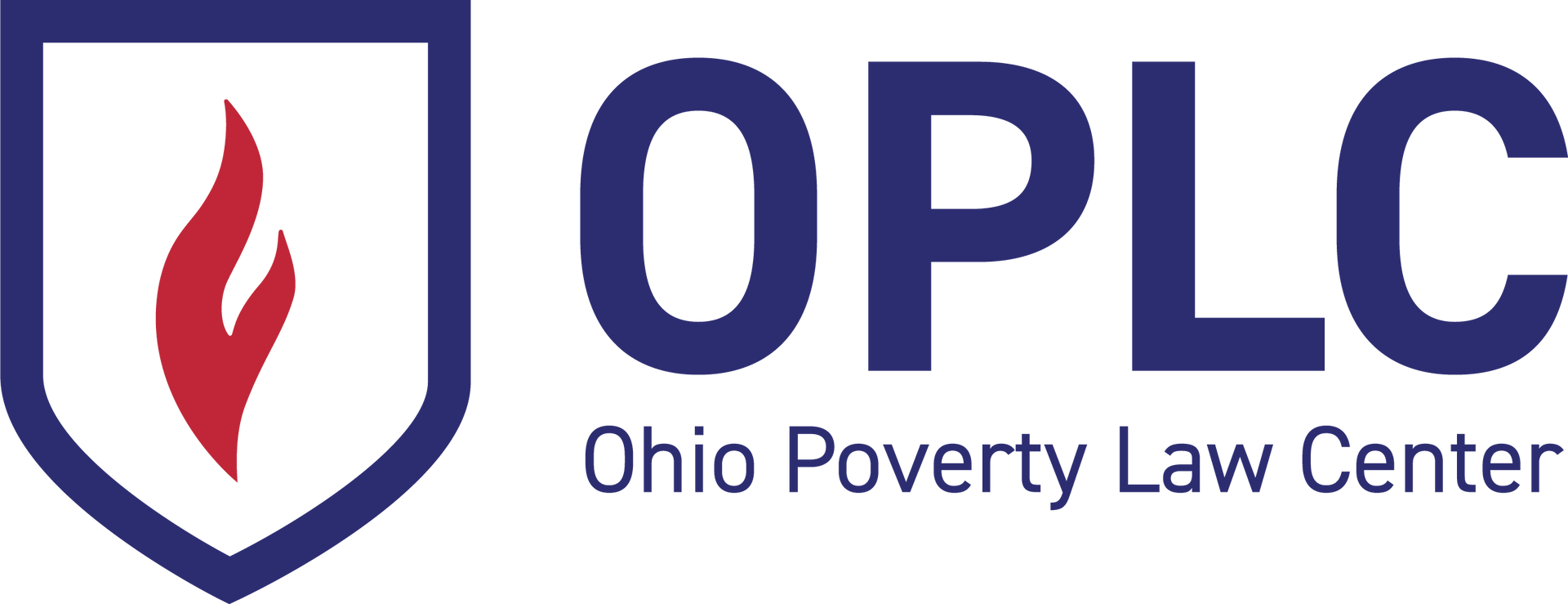OHIO POVERTY LAW CENTER MARCH 30, 2020 UPDATE
OPLC COVID-19 Update: Evictions and Unemployment Compensation
March 30, 2020
Friends
There has been so much change in our state and country since our last newsletter communication with you. Earlier this month, we were hopeful that Ohio would make the driver’s license reinstatement fee initiative permanent and reform occupational licensing to open employment opportunities for those with criminal records. Now, we have turned our advocacy to support those who will be hardest hit by the current crisis.
We appreciate and applaud the decisive leadership of Governor Mike DeWine in taking increasingly stringent steps to limit the spread of COVID-19. These steps will protect our health care system from becoming overburdened and save lives.
As we all work to change our habits and routines to abide by the recommendations and policies the Governor has put in place, we know their impact will be greater on the poorest Ohioans. More steps need to be taken to slow the spread of the virus and to give all Ohioans the ability to comply with the stay-at-home order.
Evictions
We have called for a statewide moratorium on evictions and continue to advocate for a halt to eviction filings and hearings during this crisis.
Some media coverage and statements from Congressional leaders note that the federal CARES Act prohibits evictions. The CARES Act does extend protections to some renters including those in live in federally assisted rental housing units, the rural voucher housing program, and properties with federally backed mortgage loans. But this applies to just a fraction of renters.
In Ohio, many courts have already adopted policies, but there are still courts that are continuing to hold eviction hearings. We urge all local courts to stop eviction proceedings for nonpayment of rent related to COVID19.
The moratorium on evictions needs to be combined with targeted rental assistance, to ensure the success of that policy while also stabilizing the housing market and avoiding widespread economic disruptions. Preventing evictions, when combined with other supports, will stabilize housing for both renters and property owners and reduce the spread of COVID-19. In addition to some immediate resources available through local Job and Family Service offices, the federal CARES Act will support states with more than $2 billion in Section 8 rental assistance, both tenant and project based, as well as $5 billion in community development block grant dollars that can also be used for rent assistance and other community and housing supports. The bill also contains additional supports for housing for the elderly and those with disabilities.
Unemployment Compensation
The Governor and legislature approved several changes to the unemployment compensation program to assist workers who are impacted by business closures or for those who do not have paid sick time but are sick or need to self-quarantine. The changes include waiving the one week waiting period before eligibility for benefits and the requirement that claimants actively search for work each week that they receive benefits.
Under the CARES Act, the federal government will provide $600 per week to individuals eligible for unemployment compensation. This is in addition to what the state will provide an individual. The CARES Act also extends unemployment compensation by 13 weeks and makes eligible independent contractors, gig workers, and freelancers. The Act also expands unemployment compensation eligibility to those who are quarantined or self-quarantined.
For More Information and Updates
All of Ohio’s legal aid offices are open and serving clients. Check the website of your local legal aid for up-to-date information or to access services.
Follow Ohio Poverty Law Center on Instagram, Twitter, or Facebook for updates to public programs and services, and our advocacy efforts.
